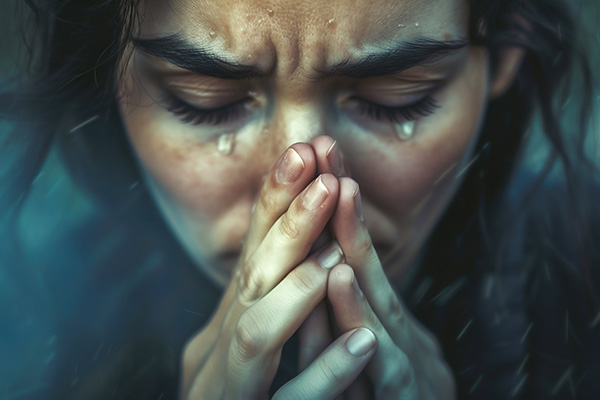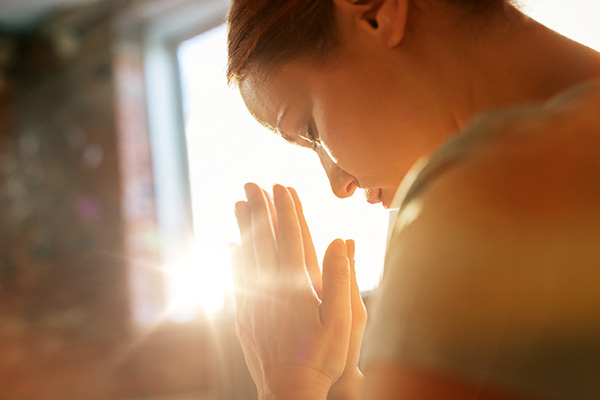emotional well-being
Why Love Feels Different Around Valentine’s Day
 Valentine’s Day is a romantic time of flowers and gifts, candlelit dinners, and declarations of love for many people.
Valentine’s Day is a romantic time of flowers and gifts, candlelit dinners, and declarations of love for many people.
But beyond the red hearts and love language gestures, many also feel a curious shift in their emotional state during this time. For many people love feels more intense, more revealing, or even more confusing this time of the year.
Why does this happen?
From a spiritual and astrological perspective, February carries unique energetic patterns that directly influence our emotional awareness and relationships. While Valentine’s Day shines a spotlight on romantic love, the entire month operates like a cosmic mirror, quietly revealing the truths beneath our connections.
It’s not just about Cupid’s arrow, it’s about clarity, emotional timing, and spiritual alignment.
Valentine’s Day did not begin as a holiday celebrating modern romance. Historically, February 14th was observed as a Christian feast day honoring Saint Valentine, who was associated with devotion and commitment in early traditions.
Over time, the day became associated with romantic love in medieval European culture. Writers helped solidify the notion of Valentine’s Day as a day for expressing affection and making heartfelt promises to a loved one.
Grief Is A Sacred Gift Of Soul Experience
 Long ago, I yearned for a deeper life, a full life, a sane life. And the door opened. It led me within.
Long ago, I yearned for a deeper life, a full life, a sane life. And the door opened. It led me within.
Now, I long for a deep wound to be healed, and again I feel the door opening. I am prepared for the changes that come each time the door opens, and welcome them with profound gratitude.
I’ve come to understand that these “doors” don’t always show up looking bright and shiny and obviously spiritual. Sometimes they arrive disguised as heartbreak, loss, and the kind of grief that knocks the breath right out of your body. It doesn’t feel like a doorway then. It feels like a wall. A dead end. A great, echoing “Why?”
Last year had been a particularly difficult time for me. So much grief! Layers of it. Old grief that I thought I had already handled. New grief that came out of nowhere. Grief that didn’t even seem to have a clear name or story attached to it. I just had waves of sadness and loneliness that would rise up and spill over when I least expected it.
All part of the process, of course. But when you’re actually in it, that is not always comforting. I remember wondering, sometimes out loud:
When will I get back into the universal flow again?
When will the spiritual things I need for my Journey manifest?
When will this heaviness lift?
I wasn’t asking in a demanding way, more like a child pressing her face against the window, looking out at life, feeling like everyone else was moving forward while I was sitting in slow motion. My faith never left, but it got very, very quiet.
Ask Spirit For Patience This Holiday Season
The holidays are supposed to be a time of joy, togetherness, and celebration. But for some of us, it can also be a time of tension, distress, and intense emotions.
Instead of being a time of gratitude, love, and connection, for some of us the holidays mark the resurfacing of old family conflicts, unresolved tensions, and the weight of others’ overwhelming expectations or criticisms.
These challenges often lead to frustration, sadness, anger, or feelings of being overwhelmed, turning what should be a time of love and belonging into one that underscores where our relationships with loved ones are most strained.
At this point, asking spirit or your higher power to help you cultivate the virtue of patience becomes a powerful way to stay grounded and centered.
Patience isn’t just about enduring difficult moments; it’s about being aware of those moments and choosing to respond with grace and dignity rather than impulsively. When tensions rise — perhaps during a family dinner where conversations may become heated or awkward — it is easy to fall back on old patterns and habitual responses. Asking for spiritual support and protection in these moments, however, can provide a higher perspective and an empowered response.
Whether it’s through a silent prayer, a few deep breaths, whispering your favorite mantra, or simply making a conscious call for help in your mind, spiritual presence can help you pause, step back, ground and center, and approach the situation calmly and with more compassion — for yourself and others.
The Simple Secret To Building Real Confidence
 Building your confidence can feel vague or out of reach, like something you’re supposed to just know how to do, but often we don’t.
Building your confidence can feel vague or out of reach, like something you’re supposed to just know how to do, but often we don’t.
The typical advice is to do affirmations, spoken aloud or posted around your home, along with journaling and gratitude practices.
While these practices can help us cultivate things like intuitive awareness, inner peace or emotional balance, they aren’t always the most effective confidence builders.
There is one essential step we must take if we want to build genuine, lasting confidence. That step is action.
It’s easy to wait for confidence to arrive like a bolt of lightning, expecting it to empower us and prepare us to finally walk the empowered path of our dreams.
But the reality is that confidence doesn’t simply appear before the journey begins. It actually grows as we move forward.
Taking action can feel intimidating. You may not feel ready. You might believe you need more time, more clarity, or more skills. But readiness doesn’t magically arrive.
Change begins when we choose to take action, even if it’s imperfect. Manifestation requires more than thought and feeling. It calls for aligned, inspired action.
Moving Forward After A Breakup Or Divorce
 Going through a divorce, or the end of a long relationship, can feel like your world has come crashing down. The dreams you shared, the life you pictured together, and all the emotional energy you invested can suddenly seem lost.
Going through a divorce, or the end of a long relationship, can feel like your world has come crashing down. The dreams you shared, the life you pictured together, and all the emotional energy you invested can suddenly seem lost.
It’s not just about losing a person; it’s also about letting go of a future you once hoped for. It can be difficult to know how to move forward.
However, even in the midst of any ending, there’s an opportunity for a fresh and meaningful new beginning.
Accepting that your relationship has ended is one of the most important steps in the healing process. It’s normal to grieve what could have been, but don’t dwell on the past. The past is a place to learn from, not a place to stay.
True acceptance means letting go of blame, resentment, and regret. This isn’t because the hurt didn’t happen, but because holding on keeps that hurt alive.
Acceptance can be difficult. It means accepting that your life will look different than you expected, and trusting that there’s still joy and beauty ahead. Many spiritual traditions remind us that everything happens for a reason, even if we don’t understand it right away. When we reach acceptance, our heart chakra can open again, releasing stuck emotions and making room for healing. Continue reading
What To Do When He Disappears Into His Cave
 He tells you he loves you, wants to be with you all the time, and can’t get enough of you. He calls and texts you constantly, and you feel like you’ve found the perfect relationship. You love the way he makes you feel. He must be “the one.”
He tells you he loves you, wants to be with you all the time, and can’t get enough of you. He calls and texts you constantly, and you feel like you’ve found the perfect relationship. You love the way he makes you feel. He must be “the one.”
Then, suddenly, he’s gone. No calls, no texts, no dates, nothing. Ghosted.
And you’re left wondering: What happened? Where did he go? Was it something I said, or did?
Well, no. He just retreated into his “cave.” It is where your man goes to think, breathe, and figure out what’s going on in his head.
This is the mysterious and often frustrating time-out that men often take when they realize things are moving too fast, or when they start to feel deeply attached.
For us women, especially those who are spiritually aware and emotionally intuitive, this sudden withdrawal can be very confusing and even painful.
Women tend to thrive on connection and open communication, and we naturally want to nurture and support others. So, when the man we care about suddenly becomes distant, it can trigger our deepest fears of abandonment or rejection.
But here’s what you need to understand: his retreat is not about you.
Tarot Forecast July 2025: Nine Of Cups
 July arrives with the vibrant energy of the Nine of Cups, promising a month filled with possibility and growth. Often called the “wish card,” this tarot card signals a month of fulfillment, gratitude, and emotional well-being. It invites us to revel in the joy of our achievements this month and reflect on how far we’ve come.
July arrives with the vibrant energy of the Nine of Cups, promising a month filled with possibility and growth. Often called the “wish card,” this tarot card signals a month of fulfillment, gratitude, and emotional well-being. It invites us to revel in the joy of our achievements this month and reflect on how far we’ve come.
The Nine of Cups symbolizes not only external success, but also the profound truth that true satisfaction comes from within. It encourages us to anchor ourselves in self-love and contentment, radiating that inner harmony into every aspect of our lives.
This July, we’re all about celebrating life’s joys and embracing the many forms of emotional abundance. From nurturing relationships to personal triumphs and moments of serenity, let’s make this July the best one yet!
This card is incredibly powerful, and it’s amazing to see the impact it has on people. It doesn’t shout or demand; rather, it rests in the confidence that everything is as it should be. As you move through the month, consider what it means to feel “full.” It’s not just material, but also spiritual, emotional, and energetic! Which dreams have come to fruition, and which new wishes are beginning to form?
The Nine of Cups is a symbol of new beginnings and fresh arrivals. It often represents a thrilling pause between chapters that invites celebration and reflection. It’s a call to action to express gratitude for what we have and who we are becoming. Whether you’re enjoying long-awaited rewards or learning to appreciate the everyday joys, July is the perfect time to trust your inner wisdom and embrace the richness of the present moment.
